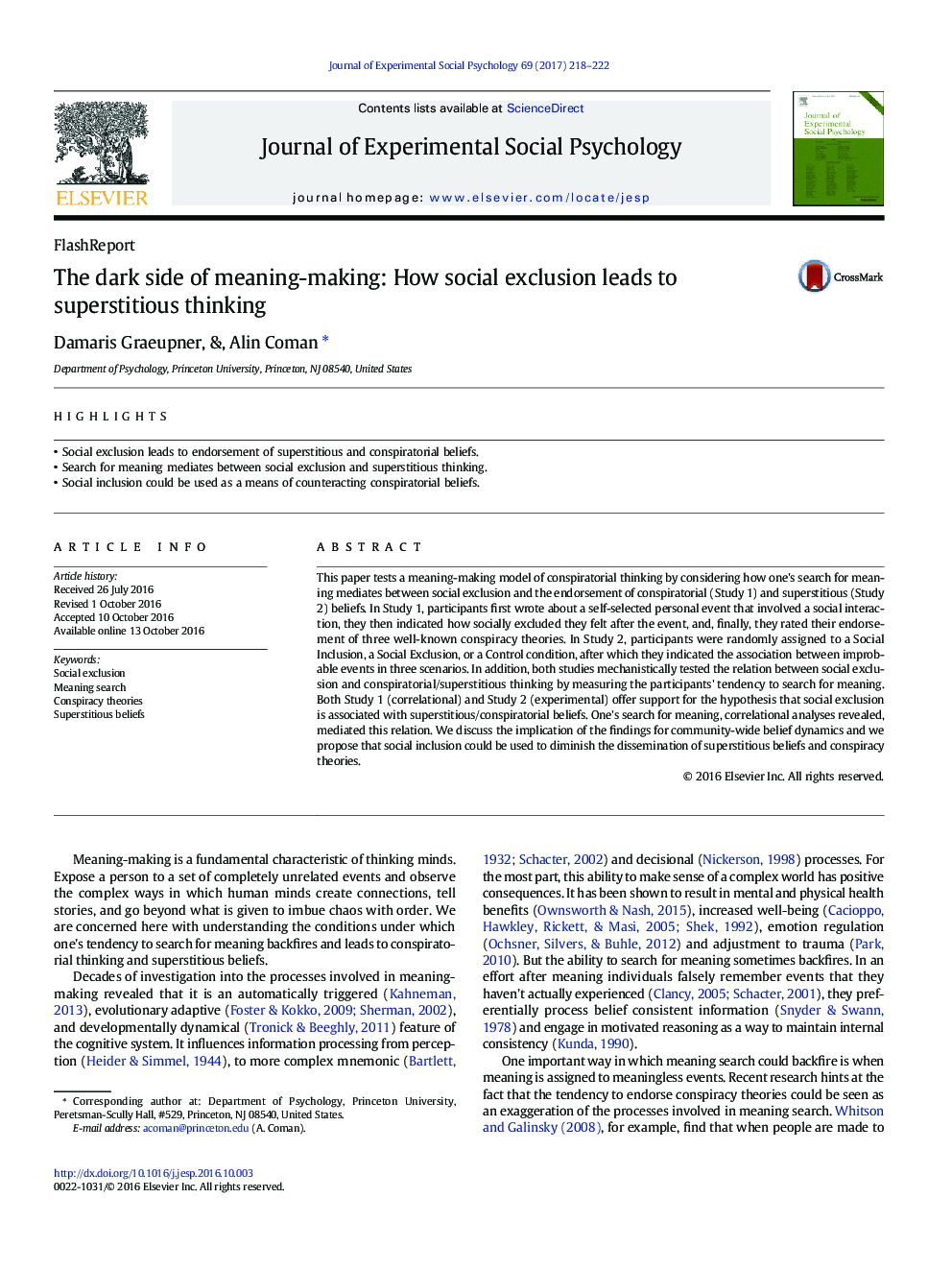| کد مقاله | کد نشریه | سال انتشار | مقاله انگلیسی | نسخه تمام متن |
|---|---|---|---|---|
| 5045733 | 1475854 | 2017 | 5 صفحه PDF | دانلود رایگان |
- Social exclusion leads to endorsement of superstitious and conspiratorial beliefs.
- Search for meaning mediates between social exclusion and superstitious thinking.
- Social inclusion could be used as a means of counteracting conspiratorial beliefs.
This paper tests a meaning-making model of conspiratorial thinking by considering how one's search for meaning mediates between social exclusion and the endorsement of conspiratorial (Study 1) and superstitious (Study 2) beliefs. In Study 1, participants first wrote about a self-selected personal event that involved a social interaction, they then indicated how socially excluded they felt after the event, and, finally, they rated their endorsement of three well-known conspiracy theories. In Study 2, participants were randomly assigned to a Social Inclusion, a Social Exclusion, or a Control condition, after which they indicated the association between improbable events in three scenarios. In addition, both studies mechanistically tested the relation between social exclusion and conspiratorial/superstitious thinking by measuring the participants' tendency to search for meaning. Both Study 1 (correlational) and Study 2 (experimental) offer support for the hypothesis that social exclusion is associated with superstitious/conspiratorial beliefs. One's search for meaning, correlational analyses revealed, mediated this relation. We discuss the implication of the findings for community-wide belief dynamics and we propose that social inclusion could be used to diminish the dissemination of superstitious beliefs and conspiracy theories.
Journal: Journal of Experimental Social Psychology - Volume 69, March 2017, Pages 218-222
